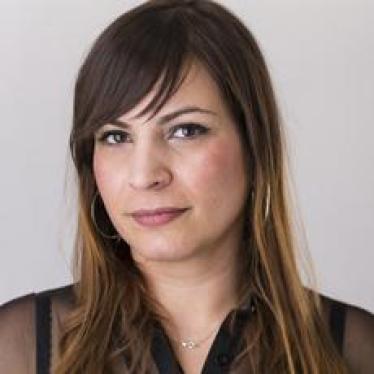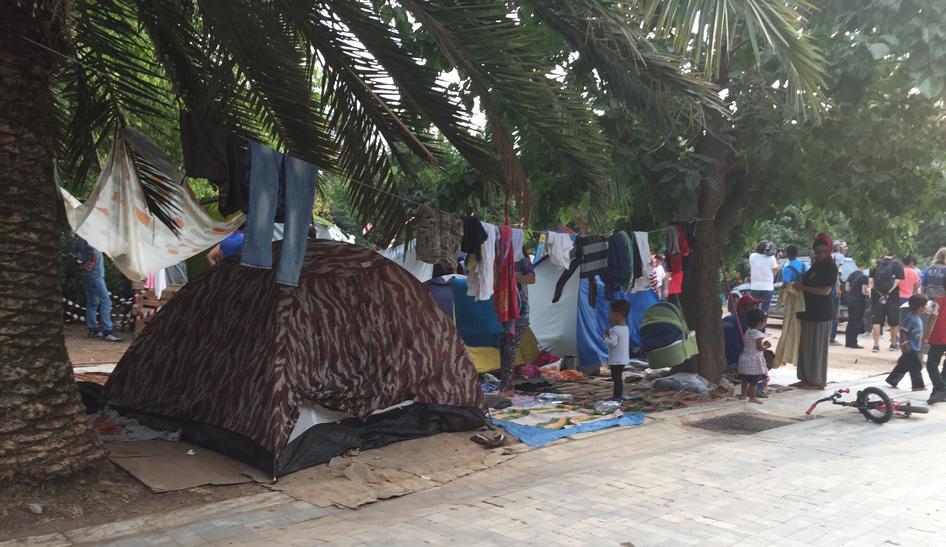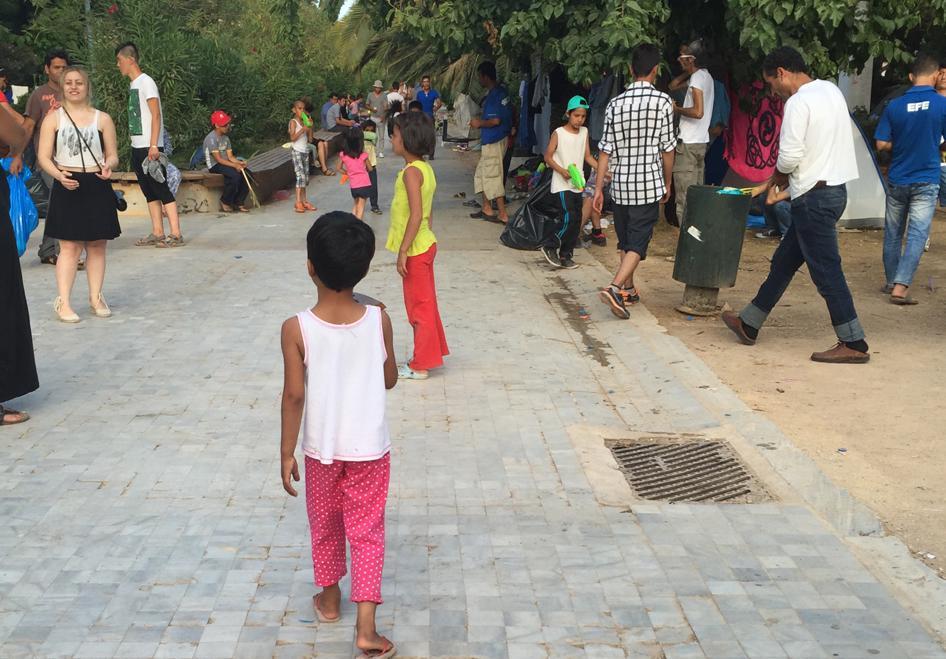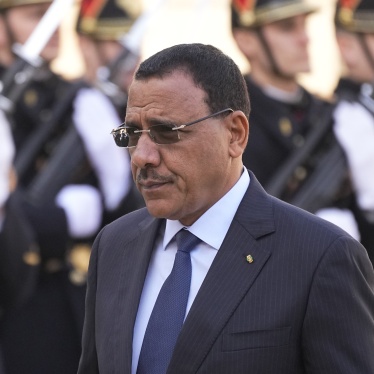“We want to go to another country. We can’t live here, in the tent. We don’t have money to rent a house, and my children need to go to school. We want to live like humans.”
These are the words of Ashmatullah, a 32-year-old Afghan I met a couple of days ago at Pedion tou Areos, a park in downtown Athens where hundreds of migrants and asylum seekers are living rough. Ashmatullah, his wife, and their three children, aged 2, 6, and 7, are among the tens of thousands of asylum seekers and migrants who crossed from Turkey to Greece’s islands in the Aegean Sea over the last few months.
On the islands, debt-stricken authorities are unable to provide for the arrivals’ basic needs. Fifty thousand migrants and asylum seekers arrived on the islands in July alone, according to European Union external borders agency Frontex, a nearly 70 percent increase over the previous month. There is not enough food, shelter, healthcare, and even toilets to go around. There is a humanitarian disaster in Athens, where squares and parks have become a refuge for hundreds of people.
In Pedion tou Areos, some 400 people, mainly from Afghanistan, live in a makeshift tent camp. There are many families with children, like Ashmatullah’s, as well as children traveling on their own. Citizens’ groups and volunteers provide assistance to people at the park and estimate that fully one-third of those living there are children. There are only two chemical toilets and people wash themselves with a garden hose attached to the park’s taps. Stagnant water, human waste, and garbage attract mosquitoes, while children walk and play barefoot. Nearby, drug users are injecting drugs. All this in summer temperatures that are reaching as high as 40 degrees Celsius.
Save the Children recently pointed to the high risks of sexual harassment, physical violence, and trafficking that women and children – particularly unaccompanied children – face in this situation.
State services are absent from the park, with migrant associations and citizens’ groups distributing food and water, occupying the children with activities, and providing basic healthcare, information, and support. Earlier this week, the government announced a plan to move people from the park to an open camp it plans to create.
Greece has its share of the blame. Just yesterday, European Commissioner for Migration and Home Affairs Dimitris Avramopoulos warned that Greece was missing out on more than 500 million euro in EU funding because it has failed to set up a service to absorb and allocate this money for immigration and asylum projects.
At the same time, EU countries have shown a lack of solidarity by pledging pitiful numbers for relocation of asylum seekers from Greece, despite all evidence that Greece is unable to handle the situation.
EU countries should increase their pledges, and explore all possible ways to help Greece respond to the needs of those arriving on its shores. In practice, it is the children living in the park who are paying the high price for Greece’s, and the EU’s, failures.












